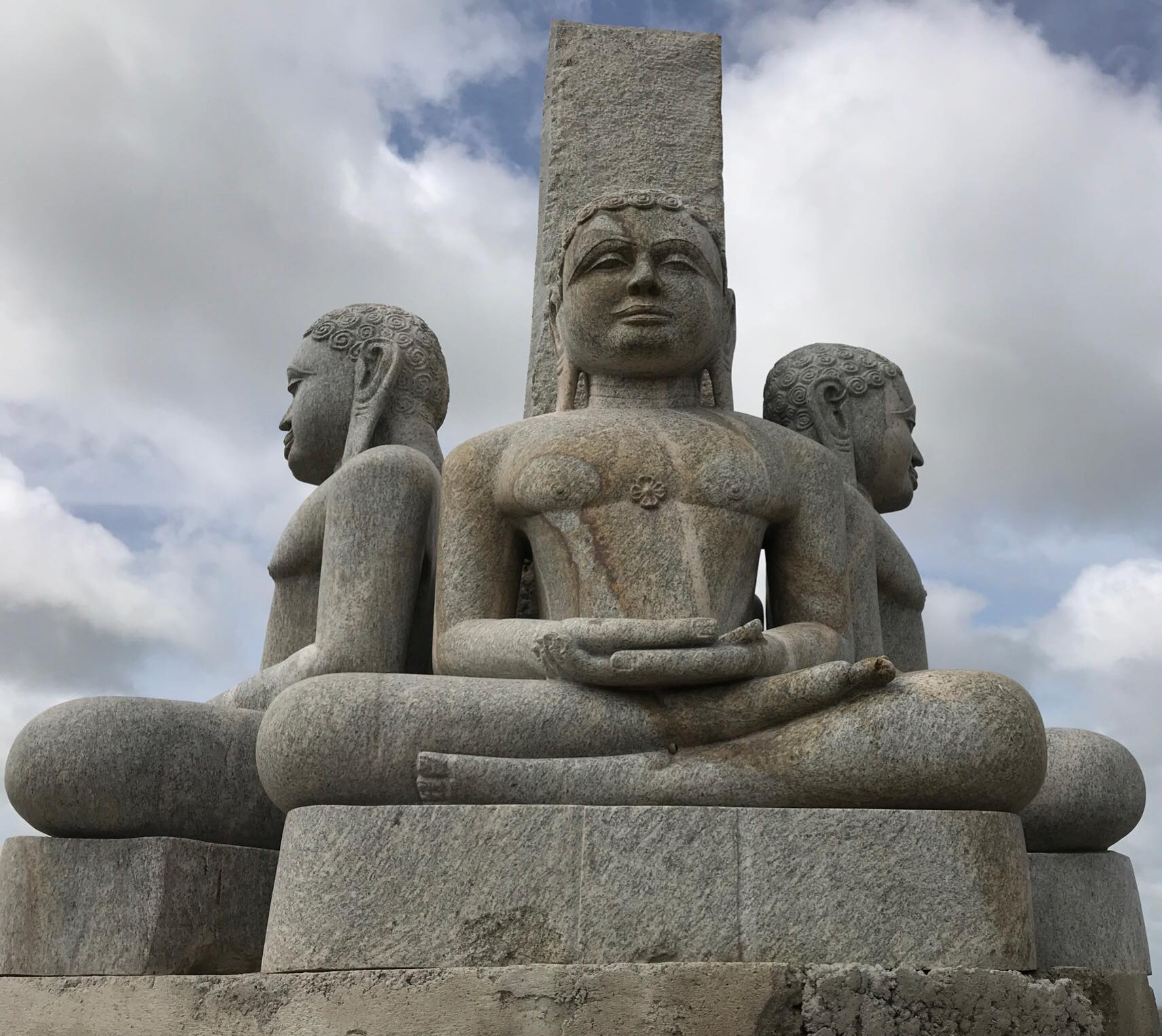Update
A policeman stops traffic to allow a mother cat to carry her kittens across Centre Street, New York; July 25th, 1925. #Live_and_LetLive
 Source: © Facebook
Source: © Facebook
If your religion makes you blind, if your religion teaches you hatred, if your religion teaches you to kill, you should better be without a religion.
 Source: © Facebook
Source: © Facebook
News in Hindi
क्या क्षेत्रपाल,पद्मावती,ज्वाल्मालिनी आदि) देवी-देवताओ से कुछ माँगना या उनकी स्तुति आदि करनी अर्घ्य चढाना,आरती करना आदि से सम्यग्दर्शन सुरक्षित रहता है? इस ज्वलंत शंका को हमे पूज्य आचार्यश्री विद्यासागर जी मुनिराज समझा रहे है।
रत्नकरण्डक श्रावकाचार ग्रंथ की वाचना के अन्तर्गत आचार्य श्री जी देव-मूढ़ता का स्वरूप समझा रहे थे। उन्होंने कहा कि- वरदान प्राप्त करने की इच्छा से, आशा से युक्त होकर राग-द्वेष से मलिन देवताओं को पूजना देव-मूढ़ता कही जाती है। तभी किसी साधक ने आचार्य श्री जी से शंका व्यक्त करते हुए कहा कि यदि कोई व्यक्ति वीतरागी देव के सामने कुछ मांगता है तो क्या वह भी देव-मूढ़ता में आता है? तब आचार्य श्री जी ने शंका का समाधान करते हुए कहा कि-
नहीं, वह मूढ़ता नहीं कहलाएगी, वह एक प्रकार से अज्ञानता कहलाएगी। क्योंकि वीतरागी प्रभु राग-द्वेष रहित होते हैं। अतः न वे किसी से कुछ लेते हैं और न किसी को कुछ देते हैं। लेकिन मांगने वाला वीतराग प्रभु के सही स्वरूप को नहीं समझ पा रहा है लेकिन समझने के निकटतम है। एक न एक दिन वह अवश्य समझ जाएगा। सच्चे देव की सच्ची पहचान न कर पाना अज्ञानता ही है|
✍ मुनि श्री कुन्थुसागर जी मुनिराज
 Source: © Facebook
Source: © Facebook
#One_of_the_Ethic_of_Jainism -Abdul Aziz Rajput
Jainism was opposed to rituals. Jainism believed in the possibility of solving the riddle of the universe to attain perfection without the concept of God. Jainism held that it was possible for any human being to realize absolute knowledge and attain absolute bliss through the intense human effort. The faith in self-reliance for achieving perfection was an integral part of Jainism. The Jainism teaches claim that the Jainas only can stand the scrutiny of reason. The Jainas emphasized that knowledge could be perfected by right conduct. Knowledge without right conduct was mere futile and conduct without right knowledge was blind. The Jainas said that one could achieve complete mastery over oneself by subduing the passions. Emancipation was to be acquired not by observing rituals, prayers and sacrifices but by regulating moral and spiritual discipline. For this reason they attached great importance to the five vows - non-violence (ahiṁsā), truth (satya), non-stealing which implies not to take anything to which one was not entitled (aṣteye), celibacy or abstention from selfindulgence (brahmacharya) and non-possession or renunciation (aparigraha). Non-violence was accorded utmost importance among these principles. The three doctrines of Right faith, Right knowledge and Right conduct which were known as three jewels constituted the foundations of Jainism. According to the Jain sources a violent man who is motivated by passion (kāşāya), first injures himself (ātmahamana), irrespective of the fact whether another being is injured or not. According to Kunda Kunda Ācārya: “Violence (cheda, cutting) is uncontrolled behaviour such as sleeping, sitting, stayng and going, i.e, physical actions. Impure activity is cheda, because it destroys monkhood activity which consists in pure activity. Therefore uncontrolled activity is always violent. In other words, impure mentality (aśuddha-upayoga) is internal cheda whether a living being dies or not. One should more cautiously abstain from internal than external violence.”
Abdul Aziz Rajput
 Source: © Facebook
Source: © Facebook
